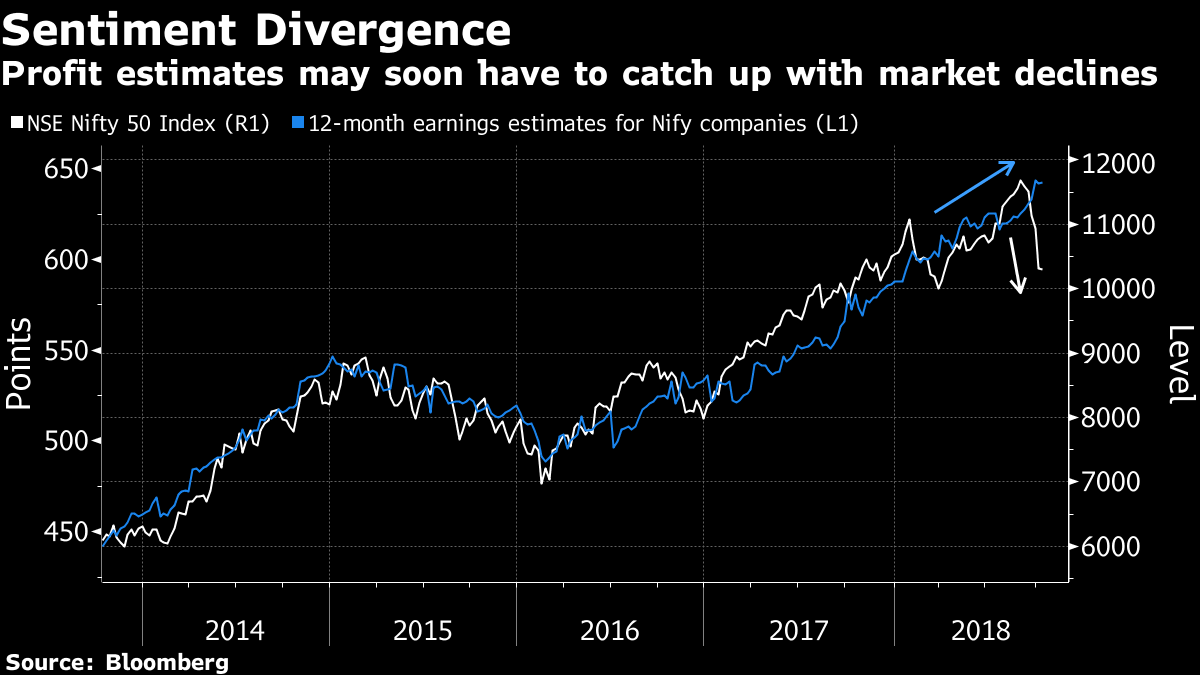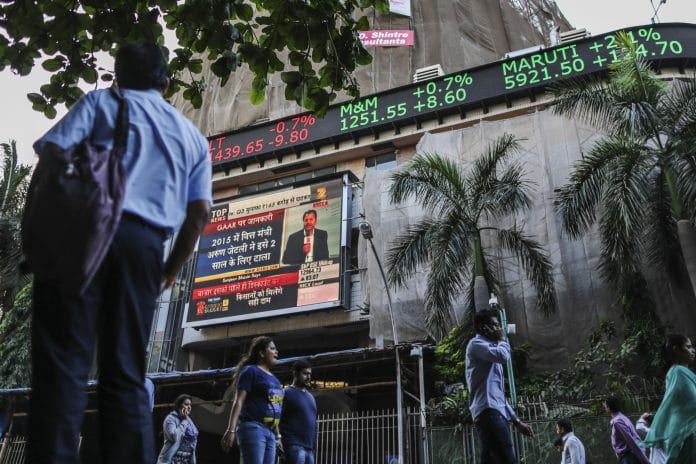After Sensex dropped to 23.4 Tuesday, some investors judged the selloff as excessive which rebounded Indian stocks.
Mumbai: Indian stocks rebounded as some investors judged the recent selloff as excessive after the benchmark index closed at a six-month low Tuesday.
The S&P BSE Sensex rose 1.4 percent to 34,760.89 at close in Mumbai after a technical indicator yesterday fell below a level that some investors see as a signal to buy shares. Seventeen of 19 sector sub-indexes compiled by BSE Ltd. advanced, led by a gauge of real estate and consumer durables shares. Zee Entertainment Enterprises Ltd. reported net income for the second quarter that was 3.5 percent below the average analyst estimate.

“Indian stocks are rebounding from an oversold zone,” Soumen Chatterjee, head of research at Guiness Securities Ltd., said by phone. “Markets will continue to be volatile in the coming days and will offer great long-term buying opportunities.”
The Sensex’s relative strength index dropped to 23.4 Tuesday, the lowest level since November 2016, while the gauge on Friday fell into a so-called correction after sliding 10 percent from a peak in August. Shares of Indian non-bank finance companies including mortgage lenders advanced after State Bank of India on Tuesday tripled its target for buying their loans. Aviation stocks surged after CNBC-TV18 reported that India may reduce a tax on jet fuel.
Indian equities — Asia’s top performers until recently — sank into a correction last week amid a flurry of bad news, from surging oil prices and a slumping rupee to a rout in non-bank lenders following defaults at an infrastructure financier. Further erosion may affect flows to mutual funds, which have repeatedly buffered the nation’s $2 trillion market against the risk-off mood.
Rupee’s longest rout since 2000 and oil’s surge to a four-year high have put earnings estimates of Indian companies at the risk of downgrades. Analysts have boosted the average profit forecast for NSE Nifty 50 Index companies by 9.2 percent this year, shrugging off a 12 percent slump in the gauge since August. History suggests the divergence won’t extend for long, and the growing stress in Asia’s third-largest economy may soon translate into lower projections. – Bloomberg






